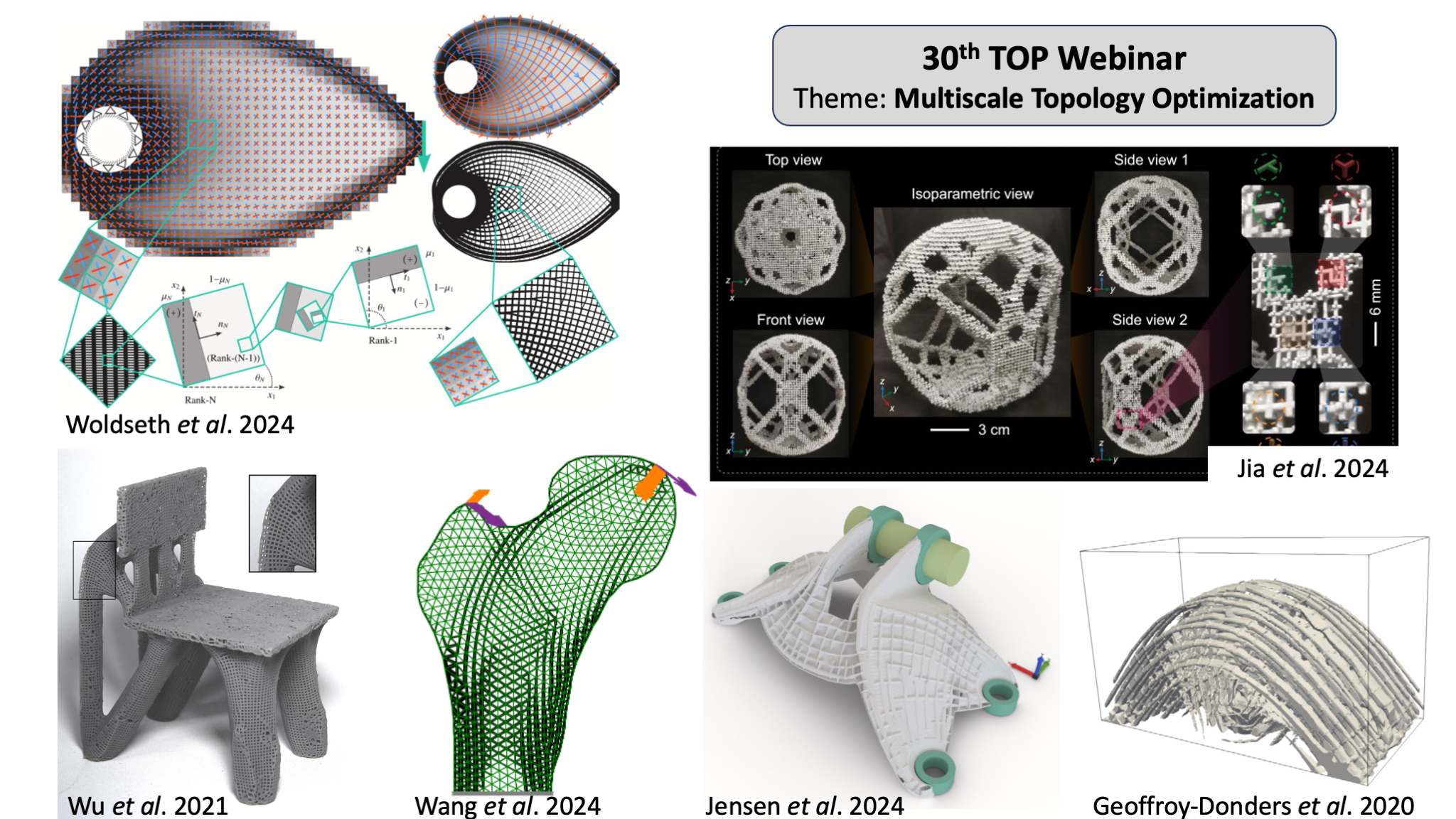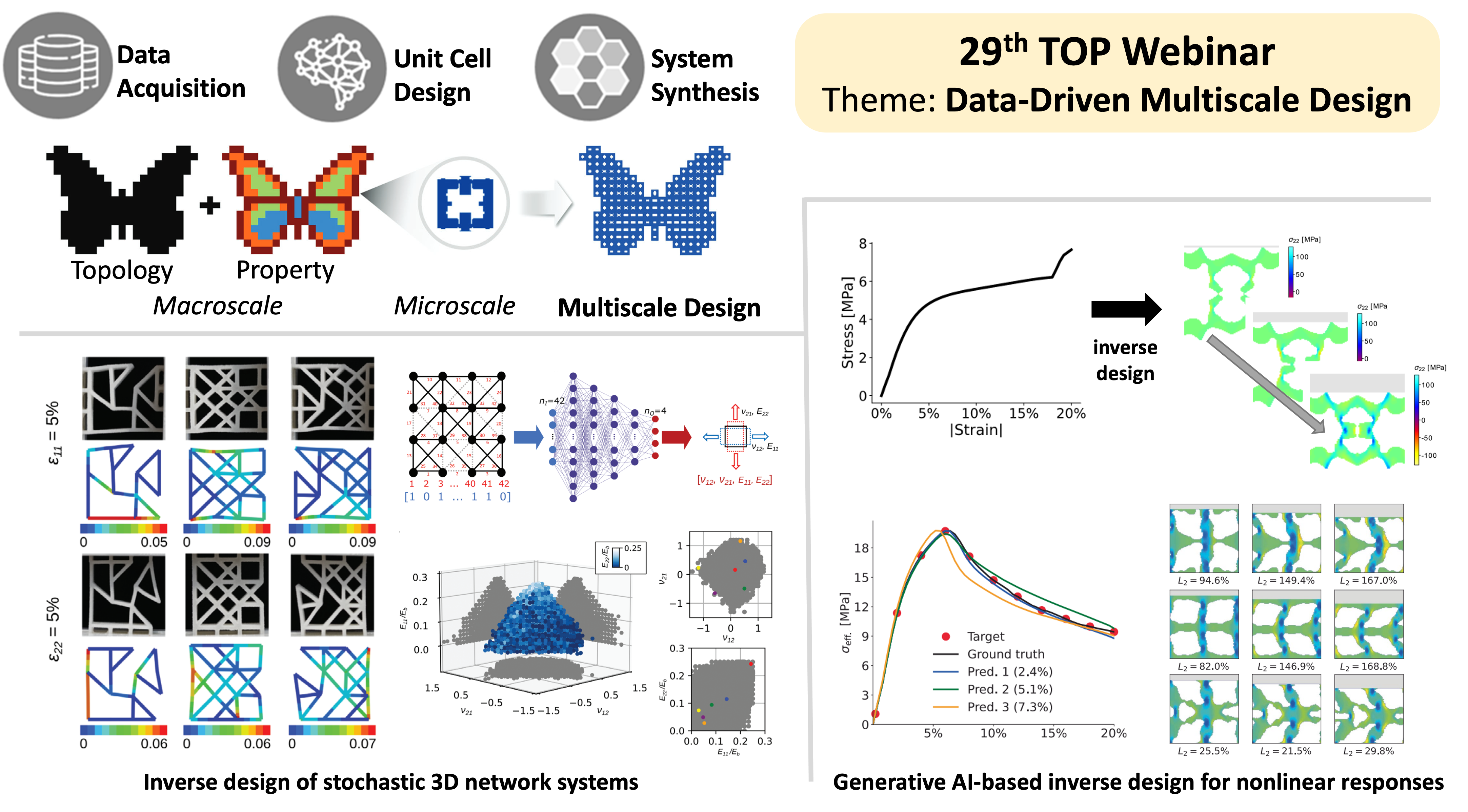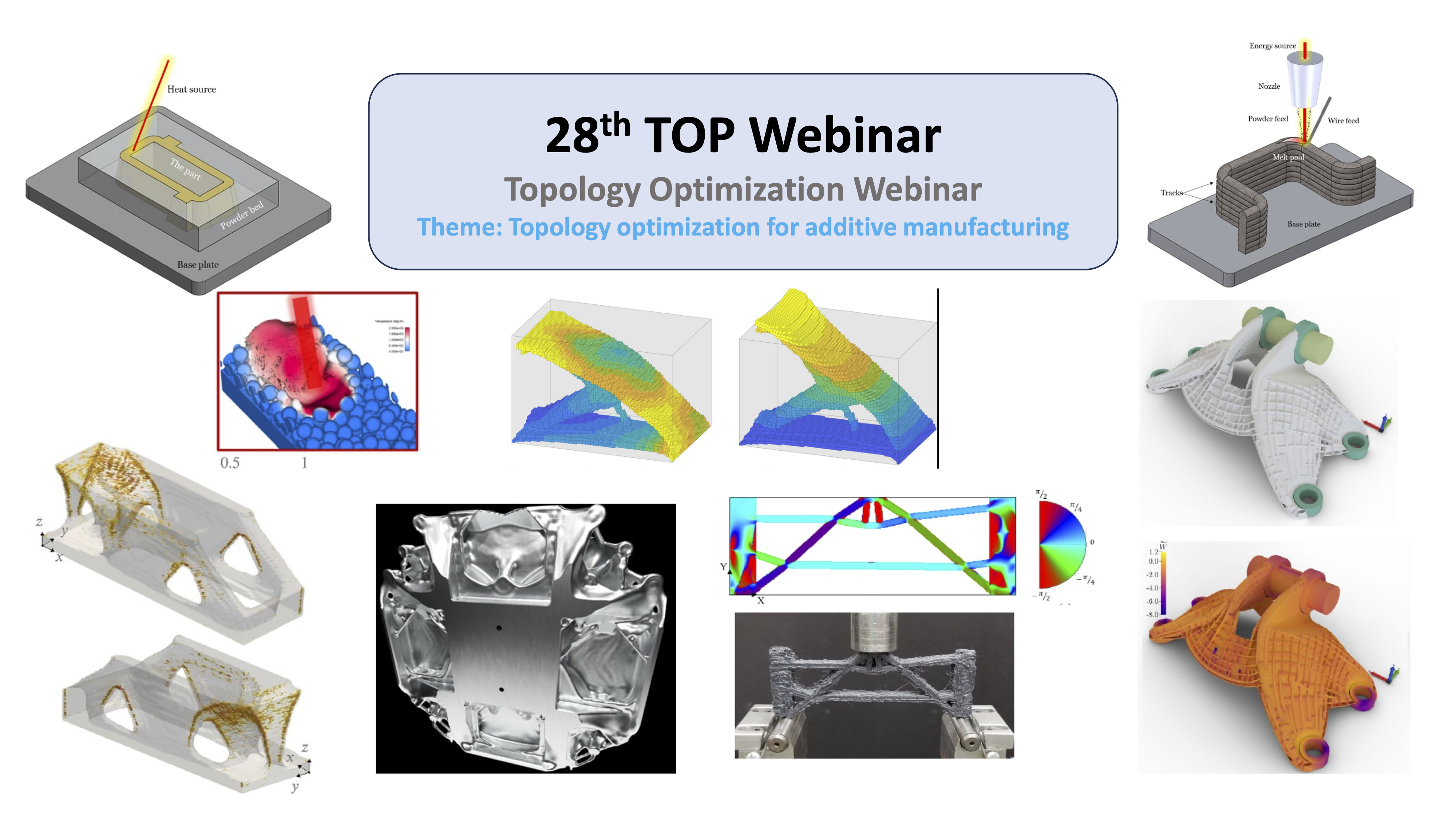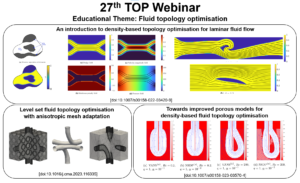We are pleased to announce the program of the 26th TOP Webinar, a thematic session on “Multiphysics topology optimization”. It is scheduled for the 23rd March 2023, 16:00-17:30 pm CET (UTC+1) Time zone converter.
Please register at this link. This event will also be livestreamed on YouTube with this permanent link.
Hosts: G. Allaire, S. Amstutz, B. Bogosel (Ecole Polytechnique, France)
Speakers
1 – H Alicia Kim, Andreas Neofytou (UC San Diego)
Title: Level Set Topology Optimization for Fluid-Structure Interaction
Abstract: In this work we introduce a level set topology optimization methodology for solving fluid-structure interaction (FSI) problems. The design dependency of the problem is handled through a particle method which employs the implicit representation of the level set boundary. For the solution of the FSI problem the modified immersed finite element method (mIFEM) is used, which decouples the fluid and solid domains enabling modularity in the solvers. This allows for the combination of a background grid for the fluid and the reproducing kernel particle method (RKPM) for the solid, to solve the FSI problem efficiently and without remeshing. Benchmarking FSI examples are solved and compared with the literature.
Papers:
– Neofytou A., Huang T-H., Kambampati S., Picelli R., Chen J-S and Kim H. A. (2021), Level set topology optimization with nodally integrated reproducing kernel particle method, Computer Methods in Applied Mechanics and Engineering, Volume 385, 1 November 2021, 114016.
https://doi.org/10.1016/j.cma.2021.114016
– Neofytou A., Yu F., Chu S., Zhang L. T., Kim H. A. (2023), Level Set Topology Optimization for Fluid-Structure Interactions, Structural and Multidisciplinary Optimization, submitted
2 – Augusto Romero, Sebastian Giusti (UTN Argentina)
Title: Optimum design of electro-thermo-mechanical devices via topological derivatives
Abstract: This work focuses on the design of flexible actuators governed by multiphysics phenomena. The objective is to obtain optimal designs of electro-thermo-mechanical actuators forced by Joule heating. The design of these devices is carried out by a topology optimization algorithm based on topological derivatives and the level-set method. Theoretical framework and applicative examples are presented.
3 – Peter Gangl (RICAM Linz)
Title: Multi-material topology optimization of electric machines
Abstract: We are interested in the design optimization of the rotor of an electric machine which consists of ferromagnetic material, air regions and permanent magnets. Each magnet is magnetized in a given direction and we treat them as different materials. We present results obtained by a vector-valued level set method for multi-material topology optimization which is based on topological derivatives. This is joint work with Nepomuk Krenn (RICAM, Linz).
Papers:
– P. Gangl. (2020), A multi-material topology optimization algorithm based on the topological derivative, Computer Methods in Applied Mechanics and Engineering, Volume 366, 1 July 2020, 113090. https://doi.org/10.1016/j.cma.2020.113090
– P. Gangl, K. Sturm (2022), Automated computation of topological derivatives with application to nonlinear elasticity and reaction–diffusion problems, Computer Methods in Applied Mechanics and Engineering, Volume 398, 1 August 2022, 115288.
https://doi.org/10.1016/j.cma.2022.115288
4 – Florian Feppon (KU Leuven)
Title: Parallel body-fitted three-dimensional topology optimization of multiphysics systems.
Abstract: We demonstrate the effectiveness of the boundary variation method of Hadamard for three-dimensional topology optimization of weakly-coupled fluid thermal mechanical systems. Our numerical methodology relies on the use of body-fitted meshes generated with the open-source library MMg, on a level-set based mesh evolution method, on analytical expressions of shape derivatives, and on the null space algorithm for nonlinear constrained optimization. It is numerically applied to a variety of 3-d topology optimization of systems, such as lift-drag aerodynamic design, fluid-structure interaction and convective heat transfer. All our examples involve moderately large scale finite element computations which are achieved in parallel by using domain decomposition techniques in FreeFEM and PETSc.
Paper:
F. Feppon, G. Allaire, C. Dapogny, P. Jolivet (2021), Body-fitted topology optimization of 2D and 3D fluid-to-fluid heat exchangers, Computer Methods in Applied Mechanics and Engineering, Volume 376, 1 April 2021, 113638.
https://doi.org/10.1016/j.cma.2020.113638





